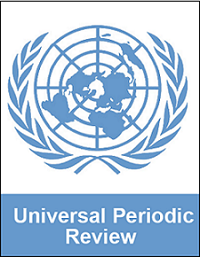Universal Periodic Review (UPR)
The Universal Periodic Review (UPR) is a unique process, which involves a periodic review of the human rights records of all 193 UN Member States. It provides an opportunity for all States to declare what actions they have taken to improve the human rights situations in their countries and to overcome challenges to the enjoyment of human rights.
Equality Commission Recommendations
In our engagement with the Executive Office, we sought to highlight key points from across our various responses to international treaty bodies (as summarised across this paper); recommendations made by the UPR Committee in its 2012 Outcome Report and the 2014 Second cycle Mid-term report submitted by the UK Government.
We recommended that the National Report should provide an update on progress and/or plans by the State under Review (SuR) to give effect to the Commission’s overarching recommendations to:
- mainstream equality across the PfG framework as a whole (including through a clear commitment to equality, underpinned by the inclusion of robust, outcome focused action measures and monitoring on S75 grounds)
- withdraw the three remaining reservations and the interpretative declaration under the UNCRPD
- ratify the Istanbul Convention and the Convention on the Protection of the Rights of All Migrant Workers and Members of their Families.
In terms of specific issues, we recommended that the national report includes reference to our recommendations to:
- strengthen the equality legislation and the laws that impact on Section 75 groups; for example, changes to law so as to permit same-sex marriage promote gender equality including by ensuring women’s economic independence and addressing barriers to participation
- eradicate gender based violence and transphobic hate crime including through ratification of the Istanbul Convention ; implementing an effective strategy to tackle gender based violence; and action to prevent and detect transphobic hate crime
- address the barriers experienced by women in accessing reproductive health care services by issuing a full public consultation on abortion law
- protect the most vulnerable from the adverse impact of welfare reform
- develop dedicated Traveller/Roma and refugee integration strategies
- tackle prejudicial attitudes; racial violence; improve reporting in respect of racist hate crime; promote values of acceptance and respect so as to improve good relations and increase representation in public life
- maximise the potential for shared education to address education inequalities and advance cohesion, sharing and integration, including through targeted strategies and training to address key issues such as prejudice-based bullying
- collect, monitor and evaluate appropriate data relating to S75 groups (including against relevant UNCRPD articles) and include gender budgeting as a commitment in the Gender Equality Strategy.
Engagement with the UPR reporting process
To date the Commission has not formally engaged directly with the UPR reporting processes.
However, in October 2016, the Commission met with representatives of the Executive Office (TEO) to highlight priority issues for inclusion by the State Party in the upcoming United Nations Universal Periodic Review (UPR) of the UK, which is due to take place in Geneva in May 2017.
The meeting provided the Commission with an opportunity to highlight issues that, in our view, should be covered by the UK National Report.
Key dates/stages
- Commission engagement with Executive Officials – October 2016;
- Deadline for submission of National Report1 - February 2017;
- Third UPR Review - May 2017